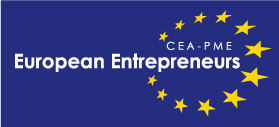
EU-Commission President Ursula von der Leyen proposed on March 15th during her speech on the preparation of the European Council meeting of 23-24 March 2023 to reduce the reporting burden of European companies by 25%. She would have made sure the Commission would present its proposals by autumn 2023 already.
Apart from the curiosity to know which 25% of what? and the slight impression, there might be some already planned interventions of the Commission that end up being branded as “contribution to the reduction of reporting burden”, we think that given the current “polycrisis” – a combination of inflation, extremely high energy costs and instability in the banking sector – which mainly hits European SMEs more than any other kind of companies, the European Commission should analyse and deliver in 3 central areas of action:
1. Reduction at the source: The European Commission should change its approach to regulation of the European economy: reports – like those required for CSR, Due Diligence, Taxonomy, etc. – will not really make the economy more sustainable and more equal. On the contrary, they cost time, which is money, which means either earning more or producing less and – in the worst case – even shutting down. Not to count the CO2 the reporting efforts themselves produce. Regulation of any activity in society requires control. The control must be exercised by those in charge and legitimated by law to control, i.e. not by private banks – like in the case of rules against money laundering or in case of taxonomy and CSR – and not by private NGOs, like in the case of the Due Diligence directive, but only the State. This is in the EU still represented by the European member states. This means the rule setting needs to be done more together with the member states and less without, e.g. through EC Regulations or even delegated acts. Rules must be controlled, and this should not be “outsourced” neither to private organisations like banks nor to NGOs or to the economic operators themselves, obliging them to report about everything they do.
2. Reduction through optimisation and standardisation: If current legislation already requires reporting, the main reduction can be obtained by using all possible means to optimise and standardise. For instance, if a company does a CSR report, this should be enough also for Due Diligence as well as for Taxonomy, and vice-versa. The Commission and the Member States should prepare simplified analytical tools to calculate automatically, for example, the carbon footprint thanks to AI and Big Data, building on stochastical models of any economic activity, and allow, e.g. to write the report automatically with the help of AI. For Due Diligence, country and sectoral studies shall be published every year by the Commission or its agencies. The companies should be allowed to use this data as given facts that are sufficiently significant for a Due Diligence report.
3. Reduction with the Once Only Principle: The European Union could cut a lot of red tape in the European Single Market if companies were required to produce for their products only once a certificate. Unfortunately, this is nowadays, after 30 years of the Single Market in 2023, still not the fact. Member states invent special obligations and procedures to limit companies’ access from other member states to their national markets. Or the European Commission requires additional or specific testing and certification for several products (e.g. construction materials, medical devices, etc.), although these are already tested or certified nationally. All this could be eliminated if “Only once” would become a principle in the Treaties or at the highest legal level possible to allow a progressive reduction of double and triple controls, testing and certification, regulating the access to the (Single) Market.
We would be happy to discuss what this means in details with the Commission and all legislateors, but these 3 central action areas could be a good guide to start.


